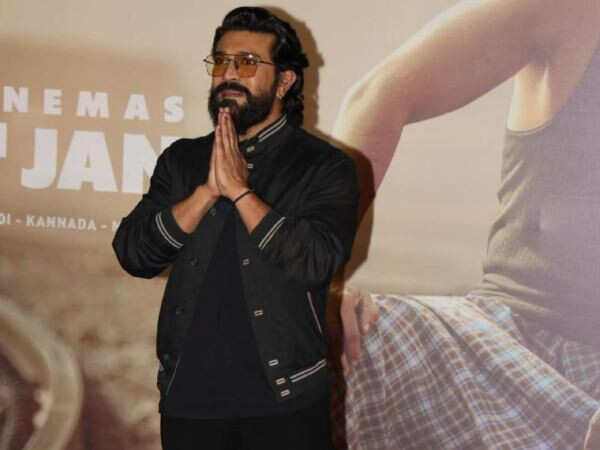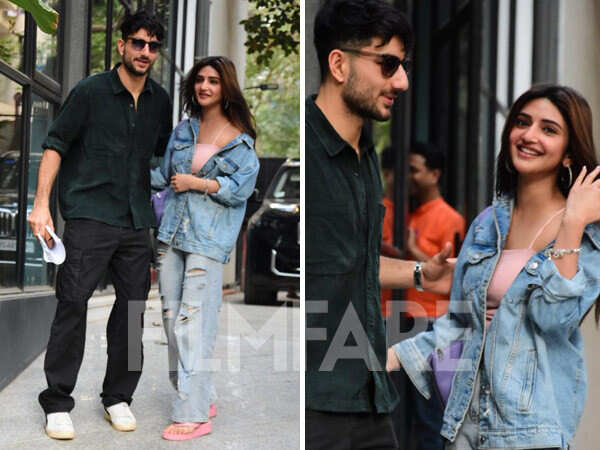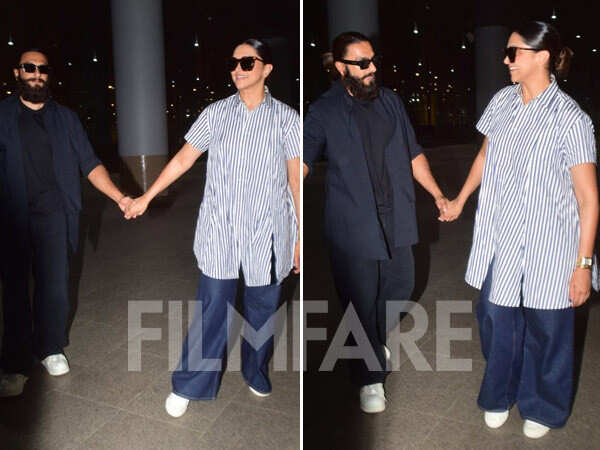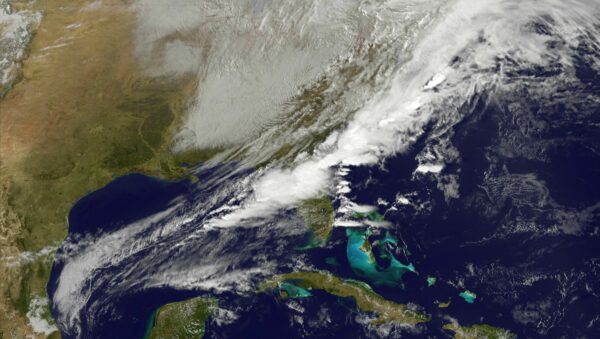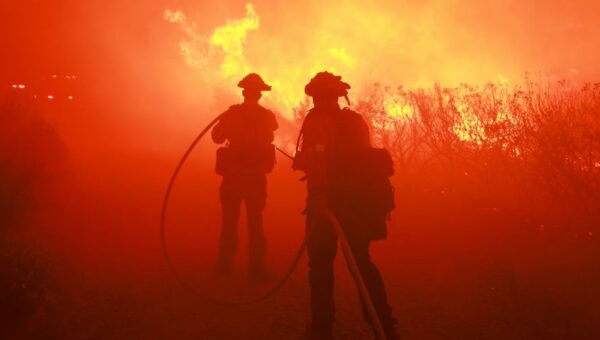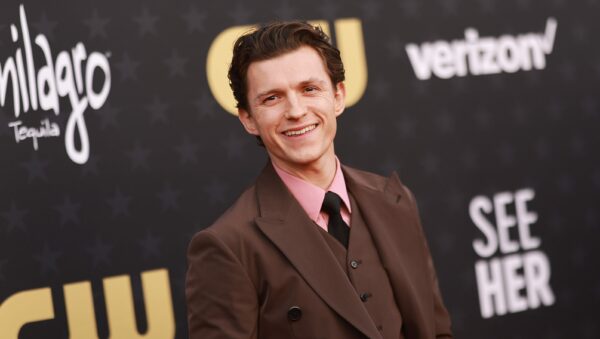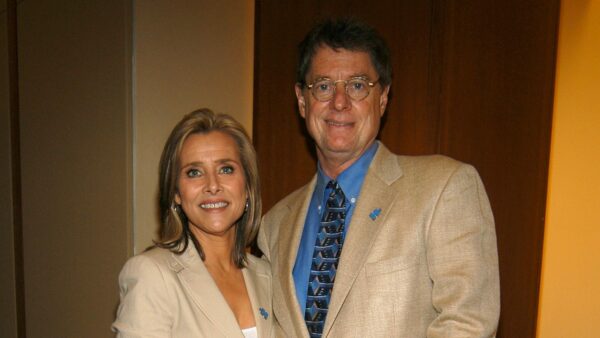Exclusive: Fatima Sana Shaikh on being a child artist her journey and more
14 min read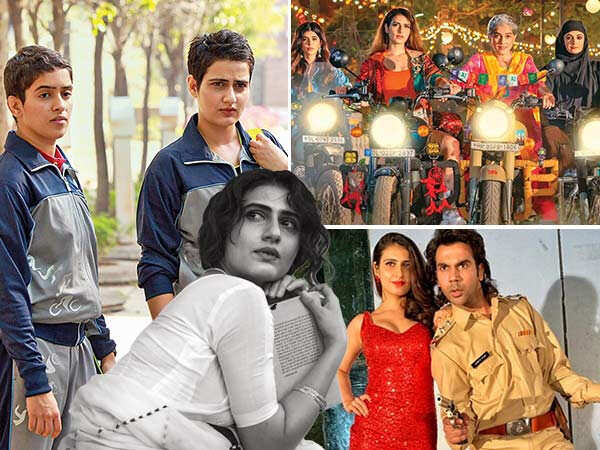
Fatima Sana Shaikh is so candid and forthright you don’t believe she’s a star. She’s been part of the industry since a young age and hence has seen it all. Some of the things a child has no business seeing. Her experiences made her grow up quickly. She laughs and says she’s living in the reverse, slowly claiming her innocence back with each passing year. If you read between the lines, you’d know about her angst with over ambitious parents. You’d catch a glimpse of her pain about abuse which every child actor goes through. There’s no bitterness in her anymore about her circumstances. There’s no silent passenger riding with her. She’s exorcised her ghosts and has learnt to live free and on her own terms. She’s exploring her boundaries as an actor with every release and slowly finding herself through the movies. She loves to talk and doesn’t pull her punches. Her answers are dipped in sass as I ask…
As a child actor, were you ever in situations that a child should not be exposed to?
I definitely faced situations a child shouldn’t be exposed to. Today, there are regulations like limited working hours and guardian supervision. When I was child artiste,
I worked 15-hour days and overheard inappropriate adult conversations. My parents were present but once they set expectations for me, there wasn’t much oversight.
Were your parents keen for you to be a child actor?
My parents were from Jammu and Kashmir and lived near Kamalistan and Filmistan studios. People from outside
Mumbai are often fascinated by film shoots. My parents would go watch them every day, taking my brother and me along. At some point, they must have asked how to get their children into films. That’s how the process began. Coming from a lower-middle-class background and knowing no one in Mumbai, they were just trying to survive.
We’ve heard about Daisy Irani and Sarika going through a lot of humiliation as child actors.
Yes, that’s true. Apart from that, children are also exposed to criticism about their looks, such as being too plump or not attractive enough. As an adult, you understand how insensitive these comments are, but when you hear them as a five- or ten-year-old, your perception of the ideal image gets warped.
Was there any particular kind of abuse you were exposed to as a child actor?
Abuse exists outside the showbiz too. Parents shouldn’t blame themselves if their child faces any. They often believe they’re giving their child a chance to showcase their talent. Once the child becomes successful, some things are overlooked. It’s a complex situation to navigate.
What about school? Were you ridiculed or pulled down?
At school, even if I behaved normally, people often thought I was arrogant. Some kids were mean but I was feisty and didn’t hesitate to stand up for myself if someone misbehaved. I would skip school because children were sometimes punished there. After 12th grade, I dropped out to explore fine arts, which I had developed an interest in during classes 11 and 12. However, pursuing the arts was expensive and my parents couldn’t afford it.
Was television also a stressful environment?
Being a supporting actor in TV is tough compared to the lead role, where you’re treated much better, whether it’s in terms of your makeup room or timely payments. Payments can be delayed for months, sometimes made every three or six months. You also have to mark your attendance daily; even if everyone knows you were on the set, forgetting to mark it means your pay will be deducted.
How did your relationship with your parents change as you transitioned from a child actor to a television star?
My mother was my manager but after a point, I didn’t want her managing my work. Your life becomes contained and often conflicting. You are protected but also not protected.
Were you ever hurt on the sets?
I was doing a TV show called Noor Jahan, where I had to jump from a tree and land on a horse. There were boxes and a mattress to cushion the fall. I was still terrified. Instead of landing on the boxes, I fell to the floor. I must have been eight or nine. The physical pain wasn’t as bad as the trauma but after about an hour, I was ready for the next shot.
Then came Dangal, your big break. What was that like, in terms of stress? You had to work on your body and learn wrestling. Did the Phogat sisters help?
The training was so intense that there was nothing left to ask Geeta and Babita about wrestling or their world. But when I saw them, I thought, “I must look like them.” If you touch their bodies, it’s like touching a rock. They are so strong. If they shake your hand, your bones might break. As international athletes, they had such a powerful presence and aura. I wanted to have that aura and physique.
Did you ever feel you lost your femininity?
I was always a tomboy, very used to being around boys and wearing my brother’s clothes, so no.
But when I cut my hair, I suddenly felt exposed. I realised that long hair is like a veil for girls. When you leave it open, you feel secure, sexy and pretty. It took me a while to get comfortable. But once I did, it was very liberating.
Tell me about your bonding with Aamir Khan. What did you like about him, and what didn’t you like? Did you have any apprehensions about working with a superstar like him?
Aamir is easy to work with and a very giving actor. He’s highly professional, always on time and a producer’s actor, which is something I’ve learned from him. Every minute on the set costs money, so being even one minute late or forgetting your lines can have consequences. I’ve learnt to be punctual, learn my lines and stay focused. Also, if you like a dress, you make sure to pay the producer before taking it.
Did you take anything from the set of a film?
I have my costume from Dangal and I also have the slate. I didn’t steal it but I was given it after a lot
of persuasion.
Do you feel that nothing you do will match up to Dangal?
Maybe no other film will achieve what Dangal did, but performance-wise, I want to grow. I believe that I will get better with every performance.
Dangal was a feminist film. Did you realise it would make such an impact?
I was a struggling actress who had just gotten the chance to work with top actors, a renowned director and a major production house. My focus was on my wrestling, my body and my appearance. At 49 kg, I had to gain weight and build muscle, training like an A-list athlete. I remember feeling emotional during the narration, surrounded by the cast and crew, with my head in my hands, worried about managing stunts like the backflip.
I was constantly stressed, anxious and terrified of losing this opportunity.
On the sets, did you realise you were doing well?
No, I didn’t. Even if someone told me I was doing well, I wouldn’t have believed them. I’m very critical of myself, and at one point, it would disable me. I constantly questioned my talent and whether people should invest in me. Then, it was Anurag Basu who gave me confidence during the shooting of Ludo. After every shot, I would ask him if I was okay. One day, he asked me why I kept questioning him. “You’re doing great work. Just chill,” he said. That was a turning point for me.
What has been your best memory on the sets?
Honestly, it’s the relationships, friendships and connections I’ve built on the sets that are special to me. Your life is defined by the people you meet. That’s why you have to choose the people around you, those who celebrate you and are achievers.
Why did you do Thugs of Hindostan?
Why not? It was a YRF film, it had Amitabh Bachchan and Aamir Khan. It was the right opportunity for a newcomer like me. When you don’t have too many choices and nothing is curated for you, you have to take what you get. If I hadn’t gotten Dangal, I would have taken whichever film was offered to me.
So, were you on your own after Dangal?
That’s an interesting point. When you’re not from the film industry, you don’t understand how the world works how the PR works to highlight your success and what you’ve achieved at every point, such as buying a house or a new car. But all of this went against my grain. So, I went into a shell and didn’t put myself out there.
Why did you go into a shell?
Because that’s just who I am. I’m someone who goes to the movies alone and eats dinner by myself at a restaurant. It’s a habit. So, when suddenly you get attention, you don’t value it, and you don’t know how to build on it. Maybe I should have worked on building it and exposing myself more.
Was there no one to advise you, given that you were working with Aamir Khan?
But you know how he is, he does one film every three years.
What about general advice?
People give advice but I’m also very rebellious. I have trust issues. I have a great team, but I was always ready to defy them because I didn’t trust them. I wouldn’t tell them if
I had received a script.
I was sceptical of people. But now, that has changed.
Did you ever seek help when you went through low phases?
Three years ago, I sought help, and it was the best decision of my life. It helped me understand myself and my traumas.
I believe everyone should seek help for mental clarity and to understand who they are. Therapy teaches you how to navigate life. It helped me learn to love and be kind to myself and to like myself, because if you don’t like yourself, no one else will. It was incredibly helpful.
You have epilepsy. Does it make it difficult for you as an actor?
I was diagnosed with epilepsy during Dangal. It’s a neurological disorder and there’s still a stigma attached to it. If you’re living in big cities, it’s manageable, but in smaller towns, epilepsy can ruin lives. When you come out of a seizure, you don’t know where you are or who’s around you. It’s a very traumatic moment.
What triggers your epilepsy?
At first, I thought flashing lights triggered my seizures, so I would avoid events and screenings and ask photographers not to use flash. They were very understanding. Later, I realised that flashing lights weren’t the actual trigger, so I started allowing them to take pictures. Initially,
I would have seizures once or twice a week but now they’re less frequent. It still disrupts my shooting schedule at times but everyone understands now.
Is that the reason you went underground at one point? How did you come out of it?
I’ve come to terms with it now. If I have a seizure, my assistant takes care of me and gives me emergency medication. I’m not scared anymore, even if people see me having one. They might get scared but I’m okay. There’s no shame in it because it’s beyond my control. There are days when I can’t shoot because of a severe migraine. The first time I saw people’s reactions to a seizure was on set when one of the junior artists had one.
I noticed the fear on some faces, others started crying, and some just moved away. It was an eye-opener.
You have a lovely relationship with Sanya Malhotra. Do you find that women are
more supportive, even though they may be fighting for the same roles or perhaps even dating the same guy at different times?
No, I think it depends on the individual relationships. I have a good relationship with Sanya. We started our careers together and I feel elated when she does well. I’m very proud of her. She’s extremely talented and growing every year. But like any person, I also have my insecurities.
Are you fiercely competitive?
I am. At the same time, I understand that not everything is in my hands. I do my job, like reading scripts and meeting people but beyond that, it’s out of my control. Producers and directors choose actors based on their preferences.
What’s the weirdest thing you’ve heard about yourself?
That I was dating Sanya. It was because we were so close, and people hadn’t seen two young actors who had been launched together be so comfortable and happy around each other and get along so well.
The funniest comment you’ve heard online?
That I look like Shubman Gill in my Dangal look. I laughed it off and even shared it.
Have you lost roles because of nepotism and had no idea how to navigate it?
I have no idea about these things. I don’t network or go to parties. I connect with people I know. My battle is to be consistent with my performance, honest with my craft and sincere as an actor, not to be cocky about myself.
Have you been a victim of toxic or sexist comments?
Fortunately, I’ve been part of great films with people who think and work with a sense of equality. However, when I worked as a character actor in television and films, I did feel the hierarchy in terms of treatment on the sets, particularly regarding respect for the time and meals of character artistes, who often juggle multiple projects at once.
You’ve worked with Kamal Haasan in Chachi 420, Shah Rukh Khan in One Two Ka Four, and Aamir Khan in Dangal. What do you recall from these experiences?
Happiness, knowledge, wisdom and professionalism, that’s what I’ve gained from working with incredible actors. During Chachi 420, I was young but I remember Kamal Haasan’s dedication. He’d arrive four hours early for makeup and juggle roles as the actor, director, DOP and likely worked on the music and editing too. His hard work was inspiring. Aamir Khan is similarly sincere, always on time, and very collaborative, ensuring every retake is smooth. Manoj Bajpayee is punctual and an outstanding actor. Diljit Dosanjh and Anil Kapoor are incredibly hardworking. I remember shooting Thar in freezing cold while wearing a short top and skirt. Anilji advised me to think warm and focus mentally. Amitabh Bachchan’s humility stood out when we shot Thugs Of Hindostan. He spent an entire day in the water in armour, only asking if the shot was right. The dedication and gratitude of these stars, whether Aamir, Amitabh, or Anilji, is what makes them so successful. I aspire to have that same attitude toward my work.
Are you attracted to dark characters? Look at your role in Ludo and then you were cheating on Jaideep Ahlawat in Ajeeb Daastaans…
I’ve played these twisted characters. In fact, in real life, everyone’s a little twisted. But no one tells you they’re dark inside. I have a demon inside me.
Do you look at the dark side of things?
No, I’m an optimist. I believe the world will be perfect, and there will be no war, only peace and kindness. I don’t think that will happen. But I get attracted to layered characters. They seem dark because they are complex and have multiple emotions. They’re conflicted. Even in real life, every decision we make is conflicted, even something as simple as deciding whether to eat a calorie-ridden sweet or not.
Are you single, or are you seeing someone?
I’m single.
What about your earlier relationships? What were you attracted to in a man, and what are the dos and don’ts in a relationship?
I think every girl is attracted to a ‘red flag’ at least once. You think you can save that person or that they’ll change for
you.
What is non-negotiable in a relationship?
I can’t stand dishonesty, especially when people aren’t honest with themselves. I’ve been cheated on in relationships
and it’s a painful experience. It really breaks you. But life moves on, and I’m fortunate to have a loving family and people who care about me. I have a lot of responsibilities and I’m learning to put myself first. Heartbreak doesn’t mean the end of your life.
Is it true that women tend to lose their identity in a relationship?
We’re conditioned to believe that we need a man, both financially and for validation as good partners. Society often
portrays being in a relationship as essential. Now that women are working and financially independent, we don’t need to rely on our partners as much. However, a divorce is still stigmatised and it’s difficult for many to take that step. But at least these conversations are happening now, which is a positive shift.
Did you ever come close to marriage with any of the men you dated?
I have no interest in marriage or having children right now. It’s not that I’m insensitive but I see love in a different way. I’m just not drawn to that kind of commitment at this point. I’ve also witnessed how some children treat their parents, who give everything for them, yet they often don’t realise that all their parents need is love and affection.
I wasn’t always the best child to my parents, and
I don’t want to experience that same treatment from a child.
Have you ever been on a dating app?
I have been on Raya but you need approval to be accepted, so I asked Sanya to approve me. However, she asked me to stay away from the app. Then I went on Tinder and I really enjoyed the swiping.
I didn’t hide my identity.
How do you deal with social media?
I used to get affected when I was younger but now
I don’t. I’ve realised that people can be spineless and enjoy bringing others down. They celebrate people’s failures. And it’s not just celebrities who are trolled, even ordinary people, especially girls are trolled. It’s quite scary.
Do you generally get angry at things?
I used to but not anymore. I’m secure and calm now, understanding that many things are beyond my control. I focus on giving my best and let go of the rest. I give second chances to people because they may be facing their own struggles. I try not to judge, as I haven’t always been perfect myself. I aim to treat others the way I would like to be treated.Fatima Sana Shaikh gets candid about her past, present and future with Jitesh Pillaai. Continue reading …Read More

